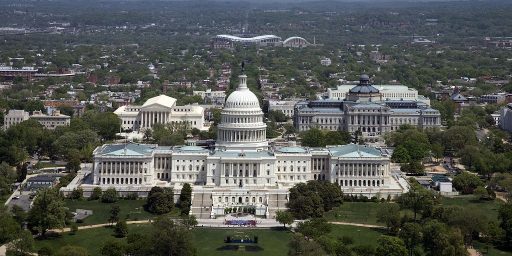NIH Bans all Consulting
NIH bans all consulting (The Scientist)
The National Institutes of Health (NIH) yesterday (February 1) announced a series of “sweeping” new ethics reforms that bar all NIH employees from consulting with or accepting payments from pharmaceutical, biotech, and medical device companies as well as from universities, hospitals, and research institutes that receive NIH funds. Intramural scientists would be permitted to maintain part-time clinical and medical practices for private patients and, under certain circumstances, to lecture and teach at universities, publish in peer-reviewed journals, and write and edit articles and textbooks as long as industry funding does not influence the content.
The new rules require most intramural scientists, all senior officials, and those having contracting and grant-making authority to divest of all stock in drug and biotech companies. Other NIH employees are limited to no more than $15,000 in stock in any one biotech or drug company.
While I understand the desire to remove any appearance of impropriety, this stikes me as poorly conceived. Top notch scientists are in high demand and can certainly earn more than a civil servant’s salary. One would think this would discourage particularly capable scientists from coming on board and will lead to an exodus of those who would be in essence be required to take a substantial pay cut.
Update (2/3): NIH Workers Don;t like New Ethics Rules
With the new rules announced by US National Institutes of Health (NIH), many worry that the rules are too harsh and it would result in lose of the researchers from the agency. The need for strict rules had been felt since the report that the relationships between the scientists and the biomedical companies might have affected the NIH decision-making. The rules include ban on consulting work for biotech and drug companies, accepting fees for speaking at conferences, and instructions that researchers divest their stock holdings in biotech companies.
The new rules could have lot many of the scientist leaving for private-sector which would mean NIH lose could be the private sector gains. Thou the NIH seem to be less worried as agreements between the agency and private-sector result in royalty payments to the NIH and specific inventors at the agency if company brings a resulting product to market.
Call this Econ 101.
Update (2-5): New rules at NIH anger its employees (Newsday)
National Institutes of Health director Elias Zerhouni stood before hundreds of NIH employees Wednesday to explain why it had become necessary for him to impose, in his words, “drastic” restrictions on stock ownership and other forms of outside income, which took effect yesterday for agency employees. “What I’m asking you to do is hold your fire until you hear the details,” he told the crowd assembled in an auditorium on the agency’s campus in suburban Bethesda, Md.
They held. And when he was done, they let him have it.
One after another, scientists, doctors and other agency staffers stepped up to the microphones and raged against the new rules, made public on Tuesday. By the time it was over, 90 minutes later, nary a positive word had been uttered about the new policy.
The goal, as Zerhouni repeatedly explained, was to save the agency’s reputation, sullied by 14 months of embarrassing revelations about conflicts of interest among NIH scientists. “This issue was standing between the prestigious history of the NIH and its future,” Zerhouni told the restive crowd.
But the solution, many argued Wednesday, was unjustifiably extreme, punishing virtually all of the agency’s 18,000 employees for the actions of a few. “Even my secretary is going to have to sell her stock. How much sense does that make?” fumed Ezekiel Emanuel, chairman of the agency’s department of clinical bioethics.
But Zerhouni told his troops that after trying to stand up for them, he had been “shot in the back” with the discovery, made by congressional investigators, that more than 100 NIH employees had not disclosed various relationships they had with pharmaceutical and biotech companies, in violation of government ethics rules. From that point, Zerhouni said, he knew he had no choice but to put draconian measures in place.
Most irritating, apparently, is the rule requiring thousands of employees – and their spouses and dependents – to divest themselves of all stock holdings in drug, biotech and other medically oriented companies. But seemingly less significant rule changes also drew jeers of derision. One rule, for example, will place the vast majority of scientific and public service awards off limits. Explaining what they could legally accept, NIH Ethics Office director Holli Beckerman Jaffe said employees “may accept the ‘honor’ associated with an award” – but not the cash. The audience was hardly appeased when Jaffe added that Nobel Prizes would still be allowed.
My guess is that these rules will be overturned rather soon. NIH can’t afford to alienate its most talented people, nor can it fulfill its mission only with scientists unable to earn money on the side, anyway. One can’t treat professionals in this manner.






Scientists have, in the past, had conflicts of interest and supressed test results in order to favor a pet drug. That’s a fairly major problem, in my mind.